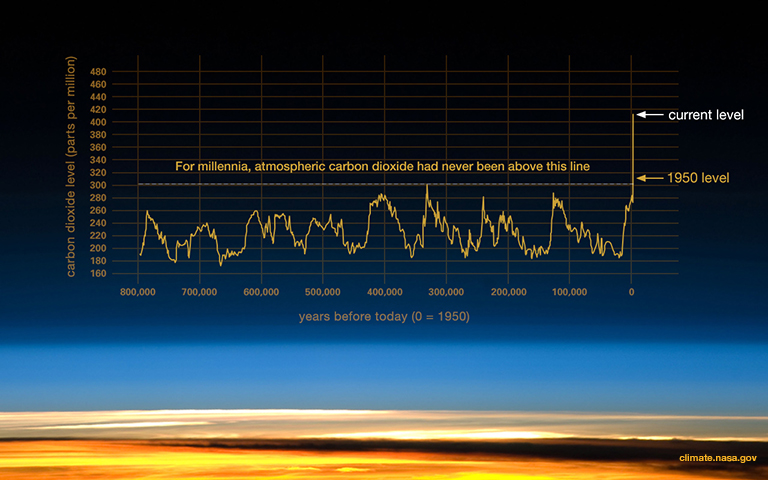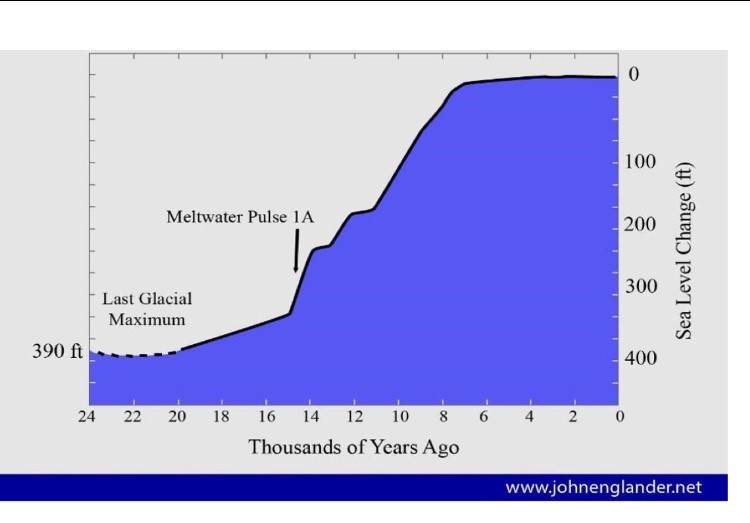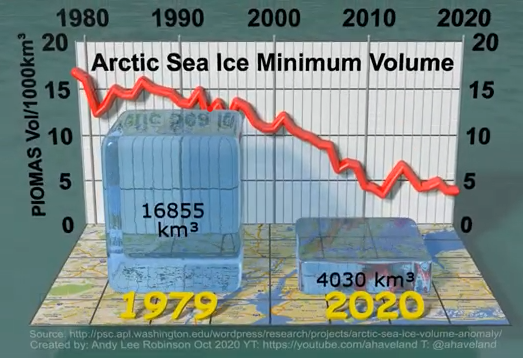February 03, 2021
WASHINGTON, D.C. – Today, U.S Senator Angus King (I-Maine) laid out the consequences of delaying the nation’s transition from fossil fuels to cleaner energy during a hearing of the Senate Energy and Natural Resources Committee on climate change. During his questioning, Senator King showcased three charts to emphasize the stakes, which exhibited the rise of carbon dioxide (CO2) in the atmosphere over 800,000 years, the rise in sea level over a 24,000 year period, and the drastic decline of Arctic sea ice in the past 40 years.

“Many people talk about natural variations, and as you can see from this chart, there are natural variations – but if you look at the far right side of the chart we are way outside those natural variations,” said Senator King. “We are well above now 400ppm (parts per million) of CO2. This is a vivid demonstration of the fact that we are in uncharted territory. In fact, it’s not really uncharted – three million years ago was the last time we had 400ppm, and by the way, the oceans were about 60 feet higher.”

“Speaking of the oceans, if you can put up Chart #2, this is a really fascinating piece of data. This is 24,000 years of history,” continued Senator King. “The low point on the left is the height of the ice age. It’s when a huge amount of water was locked up in the glaciers. What you see is the increasing depth of the oceans – it’s about 390 feet different between 24,000 years ago and today. There are two important things I want to point out on this chart. You’ll see in the middle there’s a very steep incline of increasing water depth called ‘Meltwater Pulse 1A’. The reason that’s significant is that during that period the ocean level rose a foot a decade – and many scientists believe that we’re in a similar moment right now. The point I’m trying to make is this is not science fiction – this has happened in the past.”

“Here’s the 3rd chart, which talks about the practical effects of what we’re looking at; this is ice concentration in the Arctic. It’s reduced by 75% in the past 40 years. The point I’m making is, we’re talking a lot today about the costs of transition – we also have to talk about the cost of not transitioning and the dramatic impacts that we’re facing. You want to rebuild Miami, or New Orleans, or New York? Washington, D.C, and many coastal communities. If we are talking about 6 to 8 feet of sea level rise in the next century that is a catastrophe – both a human catastrophe and an economic catastrophe. So, we’re talking about baseline in this hearing, and I wanted to talk about the fact that we are in a very, very dangerous time – and facing what I think could be catastrophic changes, if not within our lifetime, certainly within the lifetime of our children and grandchildren.”
+++
Witnesses at today’s hearing included Dr. Fatih Birol, Executive Director, International Energy Agency; Dr. Angel Hsu, Assistant Professor, University of North Carolina - Chapel Hill; Mark Mills, Senior Fellow, The Manhattan Institute; Dr. Richard Newell, President and Chief Executive Officer, Resources for the Future; and Dr. Scott Tinker, Director and Endowed Professor, Bureau of Economic Geology, University of Texas-Austin.
A forceful advocate for clean energy solutions wherever they can be found, Senator King is a founding member of the bipartisan Climate Solutions Caucus, and a lead sponsor on a range of bills that encourage energy efficiency and research on clean energy technologies, such as the Battery and Critical Mineral Recycling Act which aims to incentivize the recycling of rechargeable and electrochemical batteries needed to meet the United States’ growing clean energy needs and decrease dependence on critical mineral imports. Additionally, he introduced the Joint Long-Term Storage Act, which seeks to speed up deployment of long-duration energy storage technologies through strategic collaboration between federal agencies and was signed into law last month as part of the omnibus spending bill, and cosponsored the Energy Storage Tax Incentive and Deployment Act, bipartisan legislation which would establish an investment tax credit (ITC) for business and home use of energy storage.